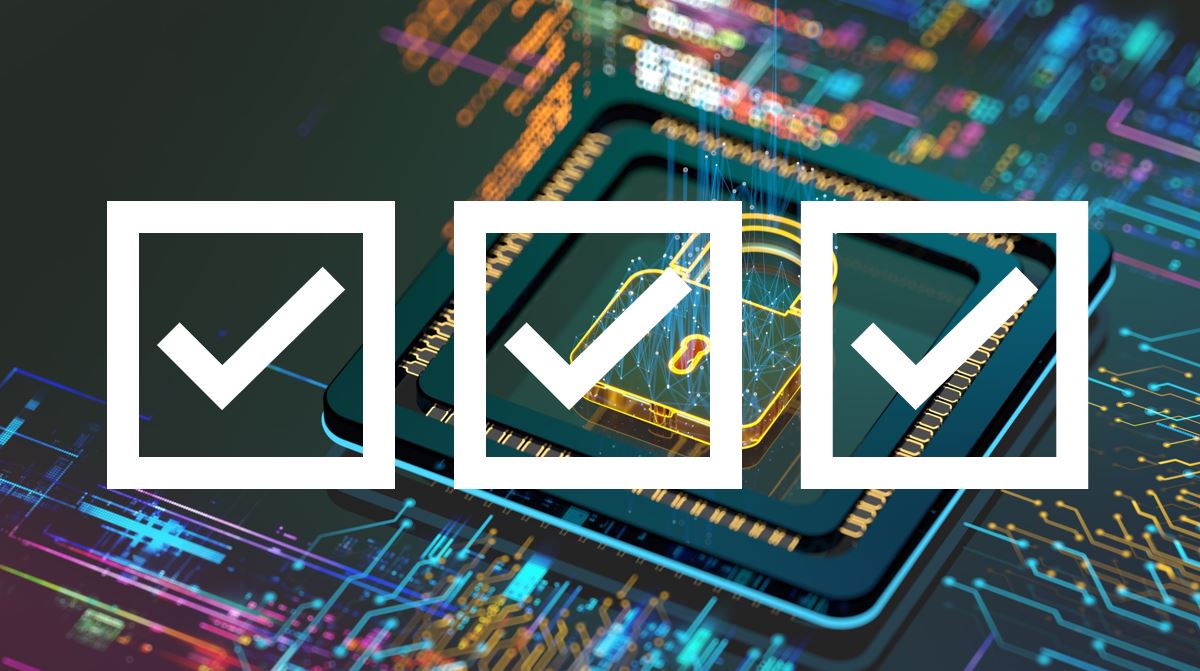Compliance with Illinois data privacy laws like BIPA, HIPAA, and PCI DSS is critical for MSPs. This checklist helps you assess your own systems and processes to ensure you meet these regulations while positioning your MSP as a trusted compliance advisor for your clients. Use this tool to evaluate your current practices, identify gaps, and prioritize improvements.
Join other area MSPs for networking and education at the ChannelPro LIVE: Chicago event on April 1-2, 2025. Get details here.
#1: Assess Your Data Security Practices
-
Encryption Standards
- Verify that sensitive data is encrypted both in transit and at rest.
- Use industry-standard encryption, such as AES-256, for all client systems.
- Why It’s Important: Protecting data assures compliance with BIPA, HIPAA, and PCI DSS while mitigating breach risks.
- Next Step: Audit your current encryption protocols and schedule regular updates.
-
Secure Backup Systems
- Back up client data in secure offsite or cloud locations.
- Test backup restoration processes quarterly.
- Why It’s Important: Reliable backups prevent data loss during breaches or disasters and align with compliance mandates.
- Next Step: Implement automated monitoring to verify backup integrity.
#2: Evaluate Your Access Controls
-
Multifactor Authentication (MFA)
- Implement MFA for all systems with sensitive data access.
- Require strong password policies across all user accounts.
- Why It’s Important: MFA protects against unauthorized access, a key requirement under BIPA and HIPAA.
- Next Step: Conduct an access audit to verify MFA is enabled for all users.
-
Role-based Permissions
- Restrict access to sensitive data based on user roles and responsibilities.
- Regularly review and update permissions as employee roles change.
- Why It’s Important: Minimizing access reduces the risk of accidental or malicious data breaches.
- Next Step: Schedule quarterly reviews of user permissions.
#3: Review Compliance Monitoring and Audits
-
Compliance Tracking Tools
- Use tools like Splunk or LogRhythm (Exambeam) to monitor regulatory compliance across networks.
- Maintain logs for access, changes, and security events.
- Why It’s Important: Continuous monitoring ensures early detection of compliance gaps.
- Next Step: Implement alerts for non-compliant activities in client environments.
-
Regular Audits
- Conduct internal audits to verify adherence to BIPA, HIPAA, and PCI DSS.
- Offer compliance assessments as a service for your clients.
- Why It’s Important: Routine checks help prevent costly violations and reinforce client trust.
- Next Step: Create a calendar for regular compliance audits and include client systems.
#4: Strengthen Incident Response Planning
-
Breach Response Protocols
- Train your team on breach notification requirements, including timelines and reporting obligations.
- Create a response checklist specific to Illinois regulations like BIPA and the Illinois Data Breach Notification Law.
- Why It’s Important: Quick, compliant responses minimize penalties and protect client relationships.
- Next Step: Test your breach response plan with simulated scenarios.
-
Managed Detection and Response (MDR)
- Offer MDR services to clients for real-time threat identification and mitigation.
- Why It’s Important: MDR enhances your MSP’s value while proactively protecting against compliance breaches.
- Next Step: Evaluate your MDR offerings and identify clients who could benefit from this service.
#5: Educate Your Team and Clients
-
Staff Training
- Ensure that your team is well-versed in Illinois privacy laws and compliance best practices.
- Provide ongoing training using platforms like KnowBe4 or SANS Institute.
- Why It’s Important: A knowledgeable team reduces internal compliance risks and improves client service.
- Next Step: Schedule quarterly training sessions for your staff.
-
Client Education
- Offer workshops or webinars to educate clients on their compliance responsibilities.
- Provide co-branded compliance checklists to help clients manage their own data privacy efforts.
- Why It’s Important: Educating clients builds trust and positions you as a compliance partner.
- Next Step: Develop a quarterly client education program focused on compliance updates.
Summary and Next Steps
Staying compliant with Illinois data privacy laws is essential for your MSP’s success and your clients’ security. This checklist provides a roadmap to evaluate your current practices, identify improvements, and position your MSP as a leader in compliance services.
Your next step is to schedule a team meeting to review this self-assessment, prioritize any identified gaps, and plan how to integrate compliance services into your client offerings. Proactive compliance management isn’t just a requirement — it’s an opportunity to grow your business and build trust.
See more articles for Illinois MSPs here >>>>>
ChannelPro has created this resource to help busy MSPs streamline their decision-making process. This resource offers a starting point for evaluating key business choices, saving time and providing clarity. While this resource is designed to guide you through important considerations, we encourage you to seek more references and professional advice to ensure fully informed decisions.
Featured image: iStock














